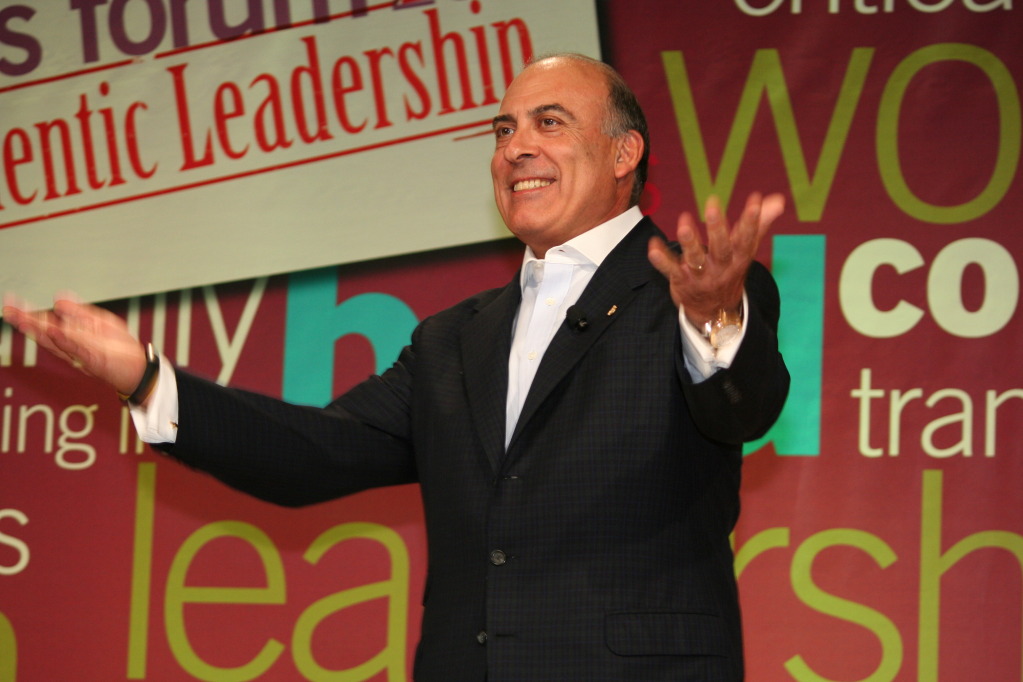Women Critical to Business Success: Coke's Kent
 When women are put in leadership roles, “brands get better and morale gets better,” Muhtar Kent, chairman and CEO of The Coca-Cola Co., told 300 senior executives at the Network of Executive Women Executive Leaders Forum this week in Rancho Palos Verdes, Calif.
When women are put in leadership roles, “brands get better and morale gets better,” Muhtar Kent, chairman and CEO of The Coca-Cola Co., told 300 senior executives at the Network of Executive Women Executive Leaders Forum this week in Rancho Palos Verdes, Calif.
Gender equality – especially in sales and marketing organizations -- is “a huge enabler to repeat success,” Kent (pictured at right) said during a one-on-one interview with NEW Forum designer Trudy Bourgeois, CEO and founder of The Center for Workforce Excellence.
Kent, Bourgeois said, is a “game changer who gets that women are an asset, that women are responsible for driving profit.”
Kent said his belief in advancing women’s leadership dates to the mid-2000s, when he was promoted to president of Coca-Cola International, leading all of the company’s operations outside North America.
“It dawned on me as I looked at the percentage of leadership and young executives who were women that there was a disconnect with the people who buy our products, who are 70 percent women. I knew I could not be successful if this disconnect continued. I knew I had to close that gap for hard business reasons.”
The son of a diplomat, Kent was born in New York and followed his father around the world. “I learned from my father very early in my life to always carry my own bag – figuratively and in real terms," he said. "That means you are grounded in many ways. It helps me to never lose sight in business of where the dollar changes hands. If you move from that point, you very quickly can become arrogant, and that is the beginning of the end.”
During his tenure, Kent has established the company’s Women’s Leadership Council, which is tasked with providing metrics on gender equity in the company among other initiatives. “We just appointed the fourth women director,” he noted, “but why would we be satisfied until we get to at least half of our board being women?”
Although the number of women in executive roles “is moving in the right direction,” Kent said he learned early on that the goal of gender equality should be addressed as a separate challenge and opportunity outside the greater goal of diversity. “I knew if gender equality was embedded in diversity [efforts], I wouldn’t get where I wanted to be as quickly as we wanted to be. We needed to tackle it separately with separate metrics."
Outside the company, Kent is active in advancing economic empowerment worldwide. “We have a responsibility to the 207 nations we serve,” he said, “and if we are to repeat success and have a sustainable business, then those communities have to be sustainable, from the smallest villages in the Amazon to neighborhoods in the largest cities. What creates sustainable communities? It’s economic empowerment of women.”
Through efforts such as providing clean water systems in small towns and villages in Africa and Latin America to economic empowerment initiatives in urban areas, Coca-Cola is committed to empowering 5 million women by 2020.
Asked what legacy he’d like to leave, Kent said, “To have done something to transfer a better world to the next generation. That is the biggest legacy you can have because it is terribly important for us who can impact that, to have a role in that from a social, economical, political, and environmental point of view, to leave a better world than we have inherited. That is becoming increasingly more difficult.”
Kent said he learns a great deal from young adults, such as his 28-year-old daughter. “If we are not connected in the consumer business to the minds and psyche of these young people, we are going to lose the plot. In the past our business was creating great, quality products and brands that taste good and having a great distribution system and great advertising that would create positive impressions. Today, you can only be successful if you create positive consumer expressions – how people talk about you. And the character of your company has to meet the expectations of young people.”
